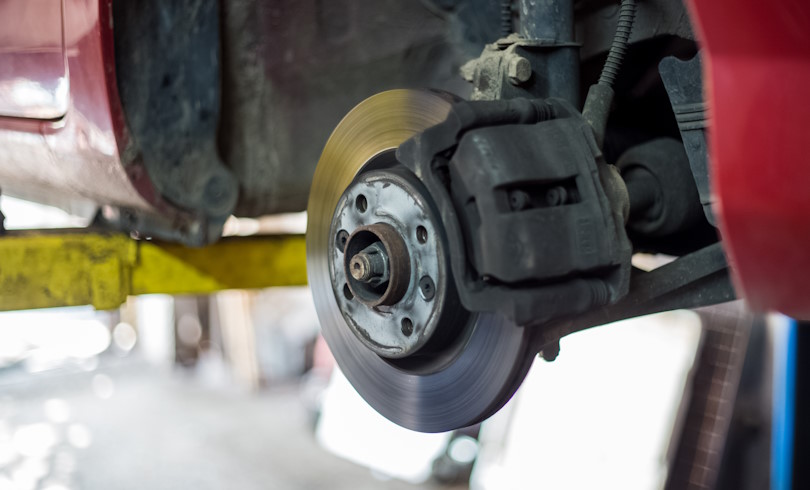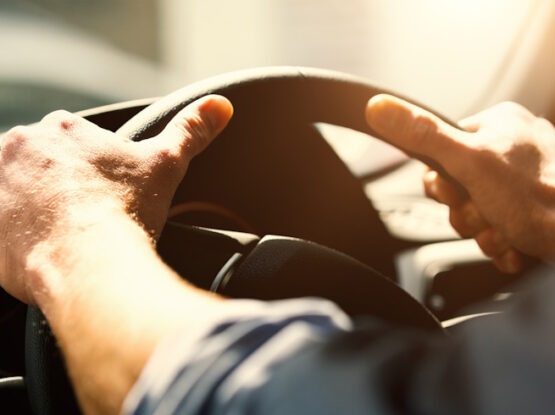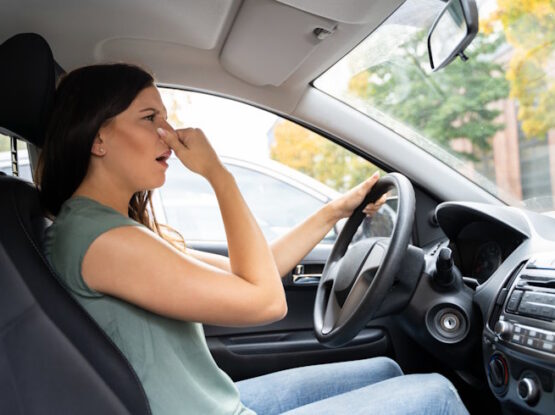Experiencing a jerking motion when you hit the brakes can be both startling and frustrating. It’s a common issue that many drivers face, yet the reasons behind it can vary widely. From worn-out brake components to improper installation, understanding the root cause is key to addressing the problem effectively.
This jerking sensation not only affects your driving comfort but can also signal potential safety risks. Delving into the common causes, such as bad brake pads, warped rotors, or ABS failure, provides insight into why your car behaves this way. Let’s explore these factors further to ensure your vehicle remains safe and smooth on the road.
Understanding the Jerking Motion
When you experience a jerking motion while braking, it’s crucial to understand the mechanisms behind this sensation. At the core of your car’s braking system is a closed hydraulic loop. This system is designed to ensure that hydraulic fluid, vital for transferring braking force, does not compress under pressure. Instead, it converts your pedal push into the necessary force to bring your car to a halt.
However, despite this sophisticated design, things can go awry. One common culprit behind braking jerkiness is the introduction of air into the hydraulic system. Unlike hydraulic fluid, air can compress, leading to inconsistent braking pressure and, consequently, that unsettling jerk you feel.
Brake rotors play a pivotal role in a smooth stop. They work by providing a surface for brake pads to press against, slowing your vehicle. Over time, rotors can warp, develop heat spots, or crack due to stress and extensive use. This deterioration directly affects your braking experience. When applying the brakes, if the pads encounter uneven rotor surfaces, the result is a vibration or jerking motion that can be felt through the steering wheel or brake pedal.
Experts suggest keeping an eye on the health of your brake components to mitigate this issue. Regular maintenance checks can uncover early signs of wear or damage to the braking system.
Understanding the jerking motion is key to addressing it effectively. Recognizing the signs and underlying causes can not only improve your driving comfort but ensure your vehicle remains safe on the road. Remember, while some symptoms might seem minor, they could signify deeper issues within your car’s braking system, emphasizing the importance of prompt attention to any irregularities during braking.
Common Causes of Jerking When Braking
Experiencing a jerking motion while braking can be alarming and is often an indication that your vehicle’s brake system needs attention. To get to the root of the issue, it’s important to understand the common causes behind this unsettling sensation.
Worn Brake Pads are a leading culprit. These essential components bear the brunt of braking friction, and over time, they wear down. When brake pads become too thin, they fail to apply even pressure against the rotors, resulting in jerking or pulsating feelings through the brake pedal and steering wheel.
Another significant issue is Warped Brake Rotors. Rotors can warp from excessive heat caused by aggressive driving or prolonged braking, leading to an uneven surface. When brake pads press against these uneven rotors, the contact is inconsistent, causing vibrations or jerking. This problem is not only common but also compromises the efficiency of your braking system.
Faulty Brake Calipers also contribute to this issue. Calipers exert force on the brake pads, clamping them against the rotors to slow down your car. If a caliper sticks or doesn’t release correctly, it can cause uneven pressure distribution. This imbalance often leads to jerking during braking.
Observing these symptoms early and consulting with a professional mechanic can prevent further damage to your vehicle’s braking system. Regular maintenance checks are crucial for identifying signs of wear or damage before they escalate into bigger, more costly problems. Recognizing the signs and understanding the causes of jerking motions when braking is an essential step in ensuring your vehicle remains safe and comfortable to drive.
Signs of Worn-Out Brake Components
When you’re on the road, the last thing you want is for your car to start jerking when you hit the brakes. This unsettling experience often points to issues with your vehicle’s brake components. Understanding the signs of wear and tear on these parts can save you from potential danger and expensive repairs.
First and foremost, listen to your car. Squealing, grinding, or metal-on-metal scraping sounds during braking are clear indicators that your brake pads are worn out. Brake pads feature a metal indicator that makes a loud noise when they need replacing. Ignoring these sounds can lead to further damage to your brake rotors, escalating repair costs.
Another telltale sign is a decrease in braking efficiency. If you notice that you have to press the pedal harder or that it takes longer to stop, your brake pads may be thinning. Brake pads should generally be more than a quarter-inch thick. Thinner pads compromise your ability to brake effectively, posing a safety risk.
You should also keep an eye out for vibrations in the brake pedal. This usually indicates warped brake rotors. Rotors are discs that your brake pads clamp down on to stop your car. When they’re not flat and even, due to overheating or stress, you’ll feel a vibrating sensation in the pedal. This uneven contact makes it harder for your car to come to a smooth stop.
Inspecting your brake fluid can also provide clues. If the fluid is dirty or low, it may suggest a leak in your system. Since brakes operate on a hydraulic system, any inconsistency in fluid levels can cause braking mechanisms to behave unpredictably. Remember, braking issues aren’t just a nuisance; they’re a critical safety concern.
Regular maintenance is key. Make it a habit to check your brakes regularly for any signs of wear and seek professional help when necessary. Early detection and addressing these issues will ensure your safety and extend the life of your braking system.
Importance of Addressing the Issue Promptly
When you notice your car jerking when braking, it’s vital to address the issue immediately. Ignoring these signs not only puts your safety at risk but can also lead to more significant, more expensive repairs down the line. Immediate attention to brake problems can save you time, money, and most importantly, keep you safe on the road.
First off, let’s talk safety. Your car’s braking system is your primary safety feature. When components wear out or fail, your ability to stop quickly and safely is compromised. This could result in dangerous situations, especially in sudden stop scenarios common in urban driving. By promptly addressing the issue, you substantially reduce the risk of accidents caused by decreased braking efficiency.
Moreover, the problems causing your car to jerk when braking don’t just disappear; they worsen over time. What might start as a slight inconvenience can quickly escalate into a more severe mechanical failure. For instance, warped rotors or worn brake pads not fixed in time could damage other parts of the braking system or even the wheel assembly, leading to higher repair costs. Early detection and repair can prevent these cascading failures.
Finally, consider the economic aspect. Regular maintenance and early problem identification can significantly extend the lifespan of your vehicle’s braking system. By dealing with issues as soon as they arise, you’re likely to face fewer hefty repair bills and maintain your car’s resale value. In contrast, neglecting signs of wear and tear can decrease your vehicle’s performance and value, making it less appealing in the resale market.
Regular checks and maintenance are less about expenditure and more about investment. An investment in your safety, your car’s longevity, and its overall value. Keep an ear and an eye out for the warning signs and ensure you act swiftly to get professional help when you notice something amiss.
Conclusion
Tackling brake issues like jerking at the earliest sign is not just about avoiding inconvenience; it’s about prioritizing your safety and ensuring your car’s longevity. Remember, the longer you wait, the higher the risk and cost. Regular maintenance and seeking professional help swiftly are key to keeping your car in top condition. By doing so, you’re not just saving on potential repair bills but also safeguarding your vehicle’s value and, most importantly, your well-being on the road. So, don’t overlook those warning signs—act fast and drive with confidence.
Frequently Asked Questions
Does low brake fluid cause jerking?
Yes, low or leaking brake fluid can cause your car to jerk when braking because it compromises the brake system’s efficiency. It may point to the need for new brake components or a fluid refill.
What causes a car to shake when braking?
Car shaking during braking is often due to unbalanced or worn brake rotors. These rotors interact with the brake pads to slow the car, and if they’re not even, you’ll feel the shaking in the pedal and steering wheel.
Why does my car keep jerking when I stop?
Jerking when stopping can be attributed to transmission issues, including a bad torque converter, dirty or low transmission fluid, or faulty shift solenoids.
Should I be worried if my car is jerking?
Yes, a jerking car should be a cause for concern. It often indicates potential future problems and should be addressed through preventative maintenance or timely repair to avoid more severe issues down the line. Contact the experts at Paul’s Auto Repair if you’re experiencing any brake jerking issues!



